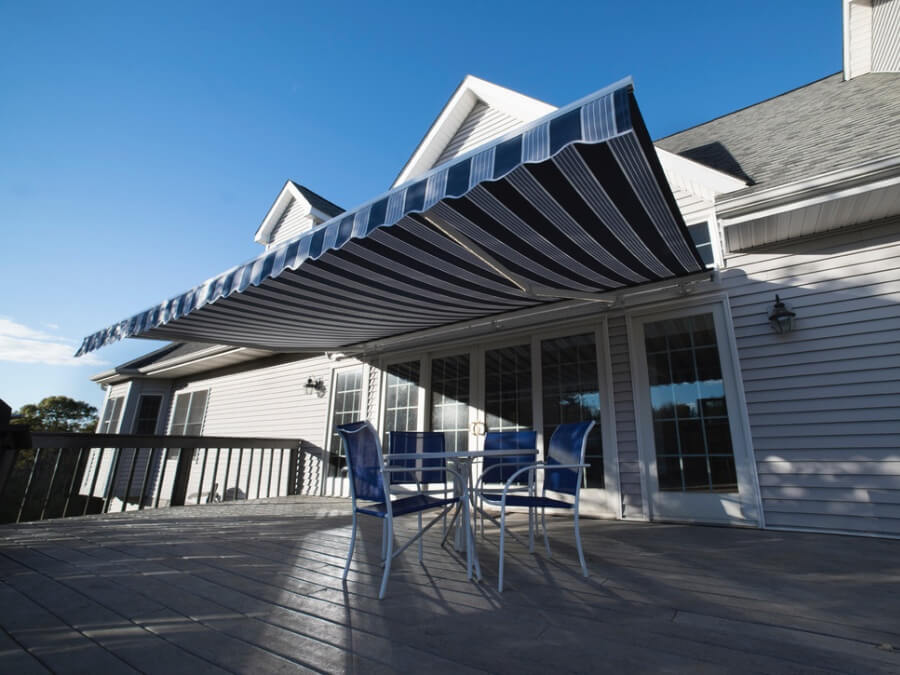
Do you require a Building Permit to Install an Awning?
Awnings are the perfect way to keep the direct exterior of your property cool during high temperatures. Whether to cover your front porch or create an outdoor space in your backyard, they are the perfect cover for any hot summer day.
They add value to your home and boost your curbside appeal. But you knew that already.
What’s very much a grey area is whether you need a permit for an awning. As laws vary from state to state and county to county, we advise that you reach out to your local building department. However, it’s better never to second-guess the situation when it comes to licenses and permits.
Different permits for different needs
Depending on where you are and how you plan to use an awning, a permit may be required. Building Department requirements and permitting processes vary from State to State, so there’s no cover-all answer here.
Among brokers (see sources below), the consensus is that residential awnings for your home do not require a permit.
You don’t need a permit if:
- Your awning is within your property.
- The projected shade of the awning does not trespass on neighboring properties.
- Rainfall doesn’t land on neighboring properties as a direct result of your awning.
- You are replacing or repairing your current awning.
Awning Permits for Condo and “Common Interest” communities
Yes, you need to seek permission from the Homeowner’s Association (HOA) of your community. It’s not uncommon for these communities to have already agreed on awning dimensions, style, and a color scheme.
Awnings are great for turning an open space into a private one. Therefore, they are highly sought in condos, with close vis-a-vis neighbors. Your HOA will advise you where you can get your awnings. Screenmobile is also available to follow the HOA guidelines and build and install your condo awnings.
Awing Permits for Commerical Properties
Proprietors of commercial properties must reach out to their local building department to request a permit. Be sure to distinguish whether you are installing an awning or a canopy. Awnings are attached solely to the property, whereas canopies have support columns.
There are different permits depending on the coverage you are installing:
Awning: a permit from the Department of Building (DOB).
Canopy: a permit also from the Department of Transport – as the support columns obstruct the sidewalk.
How to install an awning on the house?
DIY awnings are a fantastic feat of work if you are handy. However, you must build a frame with material that will work with your climate. Wood weakens over time with extreme weather conditions – your proud awning could become a harmful object that can potentially fall and hurt someone.
Different awning frame materials:
- Wood
- Stainless Steel
- Aluminium
- Copper
Different awning material types:
- Canvas Drop Cloth
- Laminated Vinyl
- Coated Cotton
- Acrylic Fabric
Which material is the best?
The material you choose will depend on two factors: location and cost. As screen and awning experts, we strongly advise against choosing cost-effectiveness if the material cannot withstand your climate.
Cheap awnings that are not chosen to suit their location and environment will rust, fray, tear, weaken, and basically fall apart sooner than you’d wish. You will end up exasperated and spending even more money.
Similar to DIY installations. Choose a method that your home can resist and support. For example, don’t have a heavy-framed awning tacked onto your mobile home or short nails on a brick finish house.
Building and installing your awning
DIY installations are possible; some online resources and guides can help take you from idea to awning. But why risk something going wrong, damaging your home, or wasting days trying to get this done when you can spend that time relaxing?
Call the professionals
Installing an awning can be done yourself, but the more extensive the job, the more experience is necessary. Reach out to your local Screenmobile expert technicians today for that second opinion and flawless finish.





